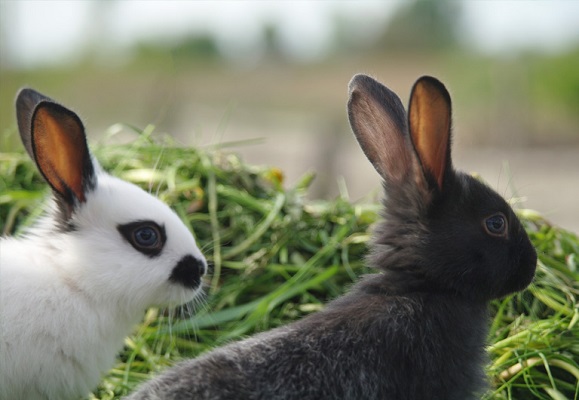

There are practices that need to be ensured inorder to have a successful Rabbit farm. These should cut around all the areas of life of a Rabbit.
Cage/ living area
Your rabbits’ living area should have a darkened sheltered area for sleeping and another for eating/relaxing. It should be a comfortable, dry, clean, well-ventilated and draught-free area where your rabbits will feel safe and be protected from predators and extremes of weather and temperature. Wood shavings or shredded paper should be used as a toilet area.
The floor of the living area should be big enough so that your rabbits can easily move around, eat and drink. The living area should be big enough for it to lie down and stretch out comfortably in all directions, high enough for your rabbit to stand up on its back legs without its ears touching the top, and it should be long enough for your rabbit to move around, feed and drink. As a guide, it should be able to hop three times from one end to another as a minimum. If you keep more than one rabbit together, there should be enough space so that each adult rabbit can behave like this.
Diet
Make sure your rabbit has a balanced diet that meets its nutritional needs. Your rabbit must have access to fresh clean water at all times and a wellbalanced diet. The bulk of your rabbit’s daily diet should consist of hay or grass which should be available at all times. Green plants and a small amount of high quality specialist rabbit foods should make up the remainder. Do not make any sudden changes to your rabbit’s diet as this could upset its digestive system and make it very ill.
Your rabbit should not be too fat or too thin. Ideally you should easily be able to feel its ribs.
Some rabbits have different dietary needs. Your vet specialist can advise you about the care of your rabbit in these circumstances
Socialization
Rabbits are social animals and should ideally be kept with another rabbit. Unless you are planning to breed from your rabbit, neutered rabbits of a similar size make the best pairing. You should be aware of how your rabbit responds to other rabbits and animals. If it does not mix well, you will need to keep it apart from others or keep it and/or the other rabbits under suitable control.
Health care
You should examine your rabbits for signs of injury and illness every day. You should especially check around its back end for soft droppings that are stuck, as these attract flies which can lay eggs and cause ‘flystrike’, which is often fatal. This is particularly important in hot weather. Ensure your rabbit is treated promptly by a vet if it is injured or ill. Rabbits try to avoid attracting attention from predators by only looking unwell when they are very ill. This is why changes in behaviour, including not eating, may indicate that your rabbit is ill. Take your rabbit for regular health checks; you can then be advised about routine health care, such as neutering, vaccinations (e.g. Myxomatosis and Viral Haemorrhagic Disease (VHD)) and parasite control (e.g. fleas), as well as any health problems your rabbits may have.
 Contact Jaguza Support
Contact Jaguza Support